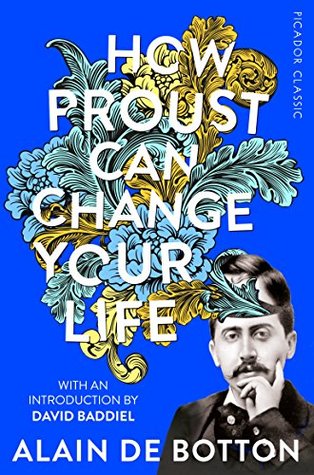More on this book
Community
Kindle Notes & Highlights
Read between
April 28 - May 2, 2020
‘aesthetically, the number of human types is so restricted that we must constantly, wherever we may be, have the pleasure of seeing people we know’.
‘When two people part it is the one who is not in love who makes the tender speeches.’ How comforting to witness a fictional person [who is also, miraculously, ourselves as we read] suffering the same agonies of a saccharine dismissal and, importantly, surviving.
an advantage of not going by too fast is that the world has a chance of becoming more interesting in the process.
‘the self-satisfaction felt by “busy” men – however idiotic their business – at “not having time” to do what you are doing’.
Voluntary memory, the memory of the intellect and the eyes, [gives] us only imprecise facsimiles of the past which no more resemble it than pictures by bad painters resemble the spring . . . So we don’t believe that life is beautiful because we don’t recall it, but if we get a whiff of a long-forgotten smell we are suddenly intoxicated, and similarly we think we no longer love the dead, because we don’t remember them, but if by chance we come across an old glove we burst into tears.
Because of the speed of technological and architectural change, the world is liable to be full of scenes and objects which have not yet been transformed into appropriate images, and may therefore make us nostalgic for another, now lost world, which is not inherently more beautiful, but might seem it because it has already been so widely depicted by those who open our eyes. There is a danger of developing a blanket distaste for modern life, which could have its attractions but lack the all-important images to help us identify them.
The incident emphasizes once more that beauty is something to be found, rather than passively encountered, that it requires us to pick up on certain details, to identify the whiteness of a cotton dress, the reflection of the sea on the hull of a yacht or the contrast between the colour of a jockey’s coat and his face. It also emphasizes how vulnerable we are to depression when the Elstirs of the world choose not to go on holiday and the pre-prepared images run out, when our knowledge of art does not stretch any later than Carpaccio [1450–1525] and Veronese [1528–1588] and we see a
...more
Q: Did he think that love could last for ever? A: Well, no, but the limits to eternity didn’t lie specifically with love. They lay in the general difficulty of maintaining an appreciative relationship with anything or anyone that was always around.
If long acquaintance with a lover so often breeds boredom, breeds a sense of knowing a person too well, the problem may ironically be that we do not know them well enough. Whereas the initial novelty of the relationship could leave us in no doubt as to our ignorance, the subsequent reliable physical presence of the lover and the routines of communal life can delude us into thinking that we have achieved genuine, and dull familiarity; whereas it may be no more than a fake sense of familiarity which physical presence fosters, and which Noah would have felt for six hundred years in relation to
...more
Like every obstacle in the way of possessing something . . . poverty, more generous than opulence, gives women far more than the clothes they cannot afford to buy: the desire for those clothes, which creates a genuine, detailed, thorough knowledge of them.
When you come to live with a woman, you will soon cease to see anything of what made you love her; though it is true that the two sundered elements can be reunited by jealousy.


